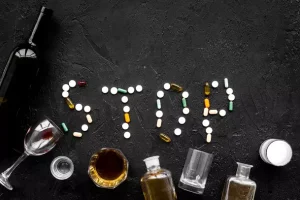
At New Method Wellness, we want to support our clients through every aspect of addiction recovery. That’s why our addiction therapy programs span a wide range of methods and approaches. Whether you’re struggling to overcome loneliness in addiction recovery or anything else, our center is here for you. As previously mentioned, your life has likely been completely uprooted through getting treatment for addiction and removing your previous toxic circle.
- One early study discussed the necessity of psychological intervention and mental health care during disasters of all kinds, and COVID-19 was no exception.
- To counter this trend, some people are advocating for digital detoxes.
- The worst part of being lonely is that it can sometimes mirror how you felt while you were struggling with addiction.
- For individuals in recovery, maintaining optimal physical health is crucial for preventing relapse, making the mitigation of loneliness even more important.
- Leaving loneliness behind helps you be surrounded by people who care about you and lets you experience fellowship in a healthy and loving way.
Limit Social Media Use

So how do we disrupt this growing sense of loneliness, especially for those on the path to recovery from addiction? According to the National Institute on Drug Abuse, addiction is a treatable disorder that can be managed, but not cured. And the most powerful tool for eradicating loneliness is the tool of communication.
The Relationship Between Addiction and Nutrition
We feel an emotional need for connection, we cry, and they pick us up and hold us. The connection soothes us, we calm back down, and our tears fade. Gradually, over time, we learn to manage that type of loneliness on our own. And we learn to keep ourselves occupied – solo – for hours on end, without the need for connection and reassurance from parents or caregivers. Morgan is a mental health counselor who works alongside individuals of all backgrounds struggling with eating disorders.
Obstacles in Personal Development and Growth
Recent years have seen increased initiatives to address SIL among formerly homeless populations. There is some consensus in social work to consider SIL in needs assessments for health and social care for some specific population groups, such as seniors and youth [18, 19]. More resources are being allocated to address SIL in supportive housing programs and intervention design [20].
Managing Triggers: Self-control for a fulfilling life

Giving support and receiving support is another way to deal positively with loneliness. During your addiction rehab sessions, you’ll likely spend plenty of time in group therapy. This is especially important because the people in your group therapy sessions are loneliness in recovery people who face the same challenges and issues as you. Chance is, many of them are also struggling with disconnection and loneliness. At Silicon Valley Recovery, our mission is to assist people in regaining their health and moving toward a better future.
Strategies to Combat Loneliness in Recovery

What we suggest here is to pay attention to what’s happening in your community or neighborhood and join in whenever you see an announcement for a public event. The best place to find these types of social opportunities is online. Neighborhoods often have groups on social media sites like Facebook or sites like Nextdoor. When you see any kind of announcement https://ecosoberhouse.com/ for any kind of social event, go participate. Think Halloween, Memorial Day, 4th of July, Labor Day – and the good thing about these events is that they’re designed to be kid/family friendly, meaning they’re organized around fun activities, rather than alcohol. When we’re very young, our parents or primary caregivers handle our loneliness for us.
Reach Out to Your Support System
- Learning new things is a great way to keep busy when you have nothing to do.
- To provide a thorough overview, we examined both quantitative and qualitative research.
- As mentioned, people with SUD often damage close relationships when they’re trying to hide their struggle.
- Participants shared their feelings of being “frightened, sad, lonely, and frustrated” and wanting to “withdraw from society” [36].

Social isolation and loneliness among people living with experience of homelessness: a scoping review

